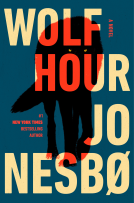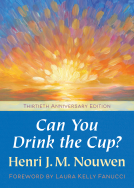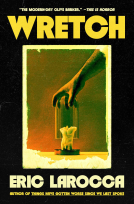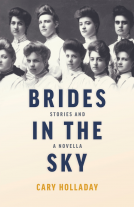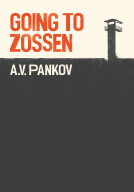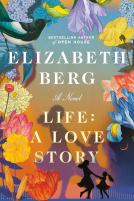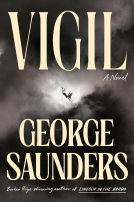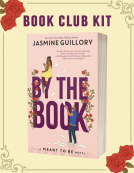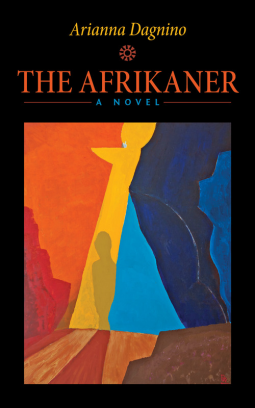
The Afrikaner
by Arianna Dagnino
This title was previously available on NetGalley and is now archived.
Send NetGalley books directly to your Kindle or Kindle app
1
To read on a Kindle or Kindle app, please add kindle@netgalley.com as an approved email address to receive files in your Amazon account. Click here for step-by-step instructions.
2
Also find your Kindle email address within your Amazon account, and enter it here.
Pub Date Apr 01 2019 | Archive Date Jul 30 2019
Talking about this book? Use #TheAfrikaner #NetGalley. More hashtag tips!
Description
Zoe Du Plessis's story unfolds against the backdrop of 1996 South Africa, caught in the turmoil of the transition from the Apartheid regime to the first democratically elected black government. A paleoanthropologist at Witwatersrand University in Johannesburg, her world collapses when her lover and colleague, Dario Oldani, is killed during a fatal carjacking.
Clinging to her late companion's memory, Zoe sets off to the merciless Kalahari Desert to continue his fieldwork. It's the beginning of an inner journey during which Zoe comes to terms with her sense of guilt as a privileged white Afrikaner while also confronting a secret that has hung over her family for generations. During a brief visit back home, Zoe meets an unlikely lover in Kurt, a legendary South African writer with a troubled past.
The conclusion spirals the reader into a new perspective, where atonement seems to be inextricably linked to an act of creative imagination.
Advance Praise
"A compelling narrative about the life and the psychology of a strong, intelligent, introspective woman in agony (her fiancé was shot dead), and the diverse people she deals with… Arianna Dagnino’s English prose is precise and brilliant… I dare to say that The Afrikaner is the first important gift the New Year brings to literary culture." --Giannalberto Bendazzi, author of Animation: A World History.
"Arianna Dagnino's transcultural novel of a young woman's struggle to recover from the brutal killing of her lover, cope with her family's tragic past and find her way in post-Apartheid South Africa, is both moving and memorable. Dagnino, drawing on her years as a journalist in South Africa, de-layers the country's conflicts, introduces some remarkable characters and takes the reader on a spellbinding journey." -- Ian Thomas Shaw, author of Quill of the Dove.
"Set in a South Africa trying to adjust to the recent end of apartheid, The Afrikaner is the compelling story of a fossil-hunter haunted by her family curse. Wise in the ways of paleoanthropology, viticulture, history, and the complex choreography of Boer, English, Zulu, Xhosa, Bushmen, and others, Arianna Dagnino’s novel fulfills its protagonist’s vision of art: “Imagination in motion." ---Steven G. Kellman, University of Texas at San Antonio.
Marketing Plan
Pre-publication reviews and interviews have appeared in The Saturday Star and are forthcoming in a selection of other literary and review journals. .
Pre-publication reviews and interviews have appeared in The Saturday Star and are forthcoming in a selection of other literary and review journals. .
Available Editions
| EDITION | Other Format |
| ISBN | 9781771833578 |
| PRICE | $20.00 (USD) |
Links
Average rating from 18 members
Featured Reviews
 Renee G, Reviewer
Renee G, Reviewer
As an ex South African I was immediately drawn into the African way of life and explored the bush which was handled with sensitivity and poise. An exquisitely written book which deserves to be read
It is always refreshing for a reader to come across a strong female character, fleshed out and with unambiguous drive; Dagnino's transcultural novel takes place in 1996 in South Africa, during the "turmoils caused from the Apartheid regime to the first democratically elected black government" and, thus, consists of a poignant narrative not only about the psychology of the heroine, Zoe, a privileged white Afrikaner, but also about the historical and political climate of South Africa.
This book was truly beautiful, lyrical, and compelling, and this is a story brimming with character and place. Arianna Dagnino writes in a way that is attractive and hard to dismiss. The Afrikaner is quite a reading experience, and one I would gladly recommend to others.
 Richard L, Reviewer
Richard L, Reviewer
This is a superb novel, immense in its range and subject. Brave in its use of the science of palaeontology to be a simile for the more recent political struggle in South Africa, its people and tribes that live in that culture and inhabit the land.
Zoe Du Plessis is the product of the white heritage in South Africa able to trace her ancestry back over 300 years. But the political reality now has a new regime in power, post apartheid it is a time where many of her Afrikaner people are re-evaluating their futures. She is a recognised professor looking for evidence of the first humans that walked this planet. The cradle of civilisation is believed to be East Africa and her research department is looking for fossil evidence to support the emergence of hominoids and human society.
The changes the book explores are political, scientific and personal relationships. In Zoe’s case her life is devastated and brought into historical context by the death of her lover and colleague, Dario Oldani.
It is always a sumptuous read; the authors words expand the panorama of the vast hinterland of the veld and desert areas. You feel a sense of place, it’s smells and sounds you see to distant horizons and understand those who have gone before. This writing infuses both the open spaces as well as the menace of downtown city roads and the fragrant coastal air.
I loved the why characters adjust to grief and loss no more so than Zoe but the fun runs through several individuals we meet.
The voice of the indigenous people; their simplicity, their oral traditions and the threat to their way of life and future is also introduced. Their ways of coping and embracement of an uncertain future is humbling and also a passed over concern, it seems like it has always been this way.
This is a book that talks about time; quantified by generations, scientific knowledge, imprisonment and opportunity. Zoe’s life is on hold. Buried like the elusive fossils she searches for and seemingly time-locked by superstition and shadows from her family’s genealogy.
How this is worked out makes this such a compelling read. In the process the dark past of Africa is shared on a canvas of the colours, traditions and culture of a fascinating geographical place.
I was moved by the sense of borders, the symbol of footprints and the question to the writer in the novel here who Zoe says can manipulate time.
It is a piece of literature that seems never ending in its focus, exploring issues that begin with an African Eve but offering in its conclusion that things can change, choices embraced and new relationships made. The ending is just wonderful and fitting, meaning the book will never leave me.
There is a lot going on in this book ranging from the murder of the main characters lover, to her family history, the use of paleontology as a comparison to political struggles, racism and inequality. It's complex and well written, but it just didn't speak to me. I just couldn't relate to the main character. I may come back and try again later. This book may have suffered from timing with other books of a similar nature so I may go back and try again at a later date, but as of this moment the book just doesn't speak to me. I think that if you're interested in books with a little drama, a little magic, and a wallop of socio-political commentary this book will be right up your alley.
Thank you to Netgalley and the publisher for providing me with an ARC for this book. All opinions are my own.
Overall I think this is a well written and engaging story about one woman's search for answers. But there’s also a lot going on in this one. It took me a little longer than normal to get through it but once I did, I really liked the story. Set in South Africa after the apartheid the story follows a fossil hunter who is haunted by a family curse. I loved the setting as well as the sheer brilliance of the main character. Most of all I loved the description of the people and the land.
 Mandy J, Reviewer
Mandy J, Reviewer
This thoughtful and intelligent novel is set in South Africa in 1996 during the transition from the apartheid regime to the first democratically elected black government. From the Cape to the Kalahari we follow Zoe du Plessis, an Afrikaner, as she searches for answers not only in her professional field as a palaeontologist but in her personal life. Multiculturalism, or transculturalism as some reviewers have termed it, is at the heart of the novel, as both whites and blacks explore issues of identity, guilt, atonement and, it is to be hoped, reconciliation. The tensions between the various racial and cultural groups are sensitively handled and the changing society in post-colonial South Africa is clearly delineated. Vivid descriptions of the African landscape and empathetic depictions of traditional ways of life enhance the reading, as does the scientific aspect of Zoe’s quest to explore the very origins of mankind. It’s a wide-ranging novel, with many issues being examined, and in some ways it’s difficult to decide what the primary focus is. Perhaps there is just too much here and a narrower focus might have been more successful. Although I enjoyed the novel I didn’t warm to Zoe herself, finding that she remained opaque to me, and that meant I wasn’t as emotionally involved as I would have liked. Nevertheless, it’s a well-written and well-paced novel that opens up post-apartheid South Africa with insight and empathy.
I enjoyed the book and really liked it. The narration and storytelling was too good. Waiting to hear more from the author. Thanks to the publisher and NetGalley for the arc.
 Jeannette N, Reviewer
Jeannette N, Reviewer
A lovely novel that I really don’t regret requesting on NetGalley.
The Afrikaner is a perfect example for what I need for my Reading around the world challenge. It wasn’t just a story, but also a lesson.
I had a brief idea about the apartheid and the racial tensions in South Africa, but little more beyond that. The Afrikaner allowed me to get a larger glimpse into the struggle between the native population (from all sorts of tribes) and the Boers in South Africa. I felt deeply and truly immersed into the world of the Afrikaners, their colonial pride, so to say, and their shame afterwards, as well as the struggle between the progressive Afrikaners who start accepting the post-apartheid situation and those who refuse to accept the black people as their equals.
Although I’m well aware what a problematic place the world is, it still sometimes amazes me to see, read or hear about how some parts of the world are and remain to be, even after the world has become such a multicultural and, more or less, free place. Of course, things have, indeed changed, from the time the book is set in, but I think they’ve gone even more astray. The book presents us with the time when South Africa is just getting used to the fall of the Boers from the government and is under the presidency of Nelson Mandela, and shows the moral dilemma of the Afrikaners who are learning to embrace their black brothers. And nowadays, Afrikaners are a dwindling population continuously stuck in an identity crisis, who are slowly, but, according to the research I made, steadily disappearing in a world that’s no longer welcoming to them.
The Afrikaner, however, went beyond just the societal role of the Afrikaner in South Africa. The book also told the story of a paleontologist called Zoe who finds herself caught up in a family curse dating from the times of the first Dutch settlers who had clashes with the Xhosa locals. The story was quite entertaining all on its own and Zoe, albeit not the most elaborate character I’ve read about, was an interesting protagonist.
My issue with the book came out of the appearance and role of Kurt. He did have a practical purpose of the book, which was obvious from the very first scene he was in, but the developments at the end just didn’t seem very plausible and felt a bit like a ploy to lead the book to where it needs to get, instead of happening naturally.
 Susan D, Reviewer
Susan D, Reviewer
Zoe du Plessis, paleontologist, Afrikaner who can trace her family history 300 years in South Africa, bereaved woman who has lost her lover and colleague to a car hijacking, is a woman who embodies the struggle of South Africa in 1996. Apartheid has ended and black government rules. Where do the former classes in the highly stratified society fit in the future, a very different future for everyone in terms of power, control and expectations?
The Afrikaner is a beautifully written novel that celebrates the beauties of Africa; presents the reality of the disappearing life of Bushmen of the desert; shows some of the reality of being a field paleontologist in a harsh environment worried by self doubt and declining expectations; and gives a view of the mine field that existed as all the disparate peoples of South Africa, black, white, colored, work out their new realities.
There are elements of magical realism in scenes among the Bushmen that evoke times long before our own. There are frank discussions of events that happened under apartheid, discussions among family, friends and others, some who prefer to put it fully out of memory. Atonement! A major sticking point even to be thought about among some Afrikaners.
This novel is such a combination of the personal, social, cultural, where even international aspects of life become involved. And then it is such a pleasure to read, to follow Zoe’s emotional journey of self and cultural identity.
Highly recommended
A copy of this book was provided by the publisher through NetGalley in return for an honest review.
“Slow down, but don’t ever stop.” Never stop at a red light. It’s one of Dario Oldani’s last thoughts as he becomes a victim of a senseless, fatal car jacking in a Central Business District area of South Africa. The tragic event of her lover’s death crushingly changes, while simultaneously cements the course of Dr. Zoe Du Plessis’ life.
Devastated with grief by Dario’s death, Zoe decides to take some time off from the university, and return for a visit to her family home Finistère – a successful winery run by her brother André.
On one of her overnight stops, Zoe is seeking a solitary moment and in the quiet and darkness, she meets a man. This “thief of stories”, believes they did not meet by accident and suggests to her that they may very well meet again. Kurt, this mysterious stranger, plays a significant part in her life further in the book.
Zoe arrives home in time to learn that André has hired on Cyril Kunene, one of the first black men to be the director of a South African winery. She has never had any interest in running the winery and welcomes the new director.
Zoe tries her best to cope with her mourning but we learn there is more to it - she feels responsible for Dario’s death. Zoe has been carrying a secret passed down through the generations that has added the burdens of fear and guilt to her grief. We discover there is an old curse on the Du Plessis family: the first-born female of the family would never produce children before their husband died. As Zoe reads her Great-Aunt Charlotte’s diaries throughout the book, we learn more about the past Du Plessis women and how the curse carried out in their lives. As a scientist, Zoe does not accept the credibility of a curse, but as a woman who has just lost the only man she ever loved, and broke through her protective walls, she can’t help but believe it.
When Zoe reports back to work, she requests to be sent to continue leading Dario’s unfinished work in the Kalahari. She is given a six month leave and recruits a team to find her “Homo”. Zoe dreams of making history by unearthing a human skull or skeletal remnant of an ancient people. Zoe is driven to honour Dario’s research but also, she purposefully wants to lose herself in Bushmanland, and exhaust herself to the point of numbness. Under the blanket of the desert, Zoe seeks to rid herself of the curse and arranges for the village shaman to try and cure her of the black spirit that is following her.
Does Zoe lose the black shadow following her? Will she meet her enigmatic stranger again?
There are layers on layers in The Afrikaner - steeped in the history and current political reality of South Africa, the struggle for balance in power, the faces of the people. Dagnino’s narrative is superb. Her skill at bringing the colours, the smells, the dust of the desert, the curving passes and lush green landscapes to the reader’s mind is expert. The Afrikaner is an exquisite read. I cannot recommend this literary work of excellence highly enough.
I thank Arianna Dagnino and Guernica Editions for most graciously providing me with the opportunity to read The Afrikaner.
The opinions expressed in my review are my own.
 Bev B, Reviewer
Bev B, Reviewer
Zoe du Plessis is The Afrikaner. She’s also a palaeontologist, who has lost her fiancé (and also her work colleague) in a car hijacking in Johannesburg. She wants to complete the work they were busy on in the Kalahari. Her own family history and secrets also emerge and threaten to disrupt her life completely.
When I observed that Adrianna Dagnino had spent only five years in South Africa, and written a novel from the perspective she chose, I approached with caution. Surely there would be some clangers – language perhaps, or interactions between diverse people groups that wouldn’t ring true. South Africa is a rainbow nation of very different people groups, with complex histories and relationships. I am happy to say that this was not the case. Whilst I am still wondering how appropriate it is for a person who is a different nationality to write from the perspective of “The Afrikaner”, I found the elements of the diversity in the novel beautiful, non-judgemental and complementary, which was uplifting and inspiring. The plot was interesting, the tension nicely built, and the ending satisfying.
A diverting and interesting book.
Readers who liked this book also liked:
L.M Montgomery
Children's Fiction, Comics, Graphic Novels, Manga, Teens & YA
Silvia Moreno-Garcia
Historical Fiction, Literary Fiction, Sci Fi & Fantasy
We Are Bookish
General Fiction (Adult), Romance, Women's Fiction



